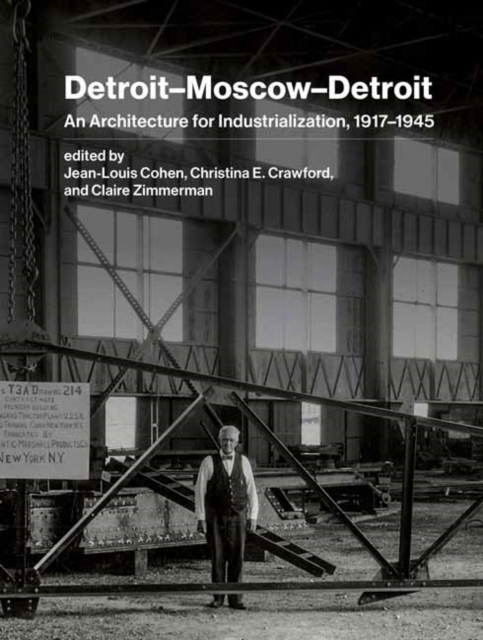Ideologically opposed, technologically cooperative--an original account of US and USSR industrialization between the world wars. Between 1927 and 1945, a tide of hyperindustrialization washed over the United States and the Soviet Union. While the two countries remained ideologically opposed, the factories that amassed in Stalingrad, Moscow, Detroit, Buffalo, and Cleveland were strikingly similar, as were the new forms of modern work and urban and infrastructural development that supported this industrialization. Drawing on previously unknown archival materials and photographs, the essays in
Detroit-Moscow-Detroit document a stunning two-way transfer of technical knowledge between the United States and the USSR that greatly influenced the built environment in both countries, upgrading each to major industrial power by the start of the Second World War.
The innovative research presented here explores spatial development, manufacturing, mass production, and organizational planning across geopolitical lines to demonstrate that capitalist and communist built environments in the twentieth century were not diametrically opposed and were, on certain sites, coproduced in a period of intense technical exchange between the two world wars. A fresh account of the effects of industrialization and globalization on US and Soviet cultures, architecture, and urban history,
Detroit-Moscow-Detroit will find wide readership among architects, urban designers, and scholars of architectural, urban, and twentieth-century history.
Contributors: Richard Anderson, Robert Bird, Oksana Chabanyuk, Jean-Louis Cohen, Christina E. Crawford, Robert Fishman, Christina Kiaer, Evgeniia Konysheva, Mark G. Meerovich, Sonia Melnikova-Raich, Lewis H. Siegelbaum, Maria C. Taylor, Claire Zimmerman, Katherine Zubovich.










